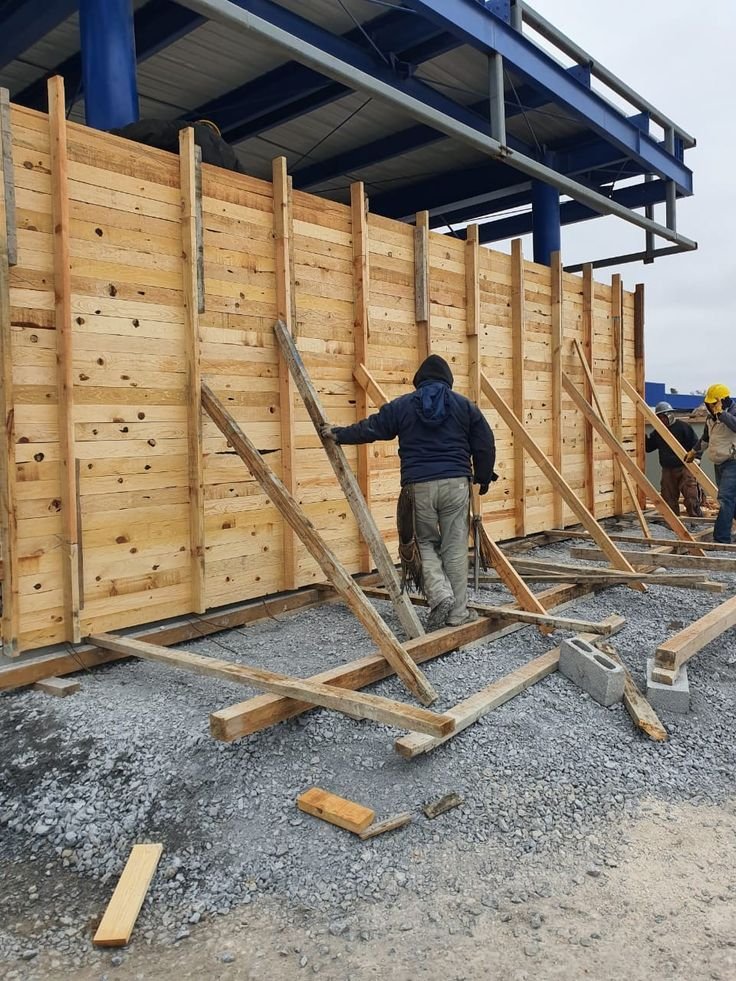Advanced formwork systems, also known as modular formwork systems, utilize pre-engineered, reusable components to streamline concrete construction. These systems offer advantages like faster construction, reduced costs, and improved safety compared to traditional, site-built formwork. They are often used in high-rise buildings, tunnels, and other large-scale projects where speed and efficiency are crucial.
Formwork design and engineering involve creating and supporting temporary molds to shape and hold concrete until it hardens. This process is crucial for building various concrete structures, including slabs, columns, and beams. Effective formwork design ensures safety, stability, and the desired structural integrity of the finished concrete element.
Specialized formwork techniques refer to advanced and specific methods used to create formwork, which are temporary molds that hold concrete in place until it hardens. These techniques are often employed for complex or large-scale concrete projects, offering advantages like efficiency, speed, and cost-effectiveness.
Formwork technology involves a variety of materials and techniques used to create temporary molds for pouring concrete into desired shapes. Common materials include timber, steel, aluminum, and plastic, each with its own advantages and disadvantages. Modern formwork systems are also being developed, such as permanent insulated formwork and engineered formwork, which offer advantages in terms of durability, reusability, and speed of construction.
Quality control in formwork involves ensuring the formwork system is structurally sound, properly assembled, and meets design specifications. Troubleshooting focuses on identifying and addressing issues like leaks, inadequate bracing, or structural deformation during concrete pouring.
A Practical Workshop – Hands-on Formwork Training focuses on providing practical experience in designing, building, and utilizing formwork systems in the construction industry. This type of training combines theoretical knowledge with hands-on practice, ensuring participants gain a strong understanding of formwork principles and techniques.





